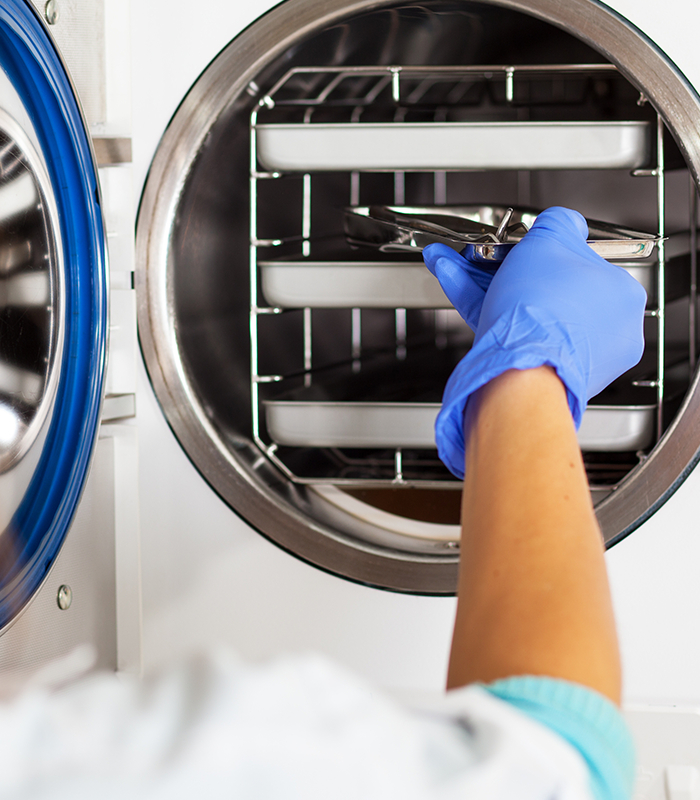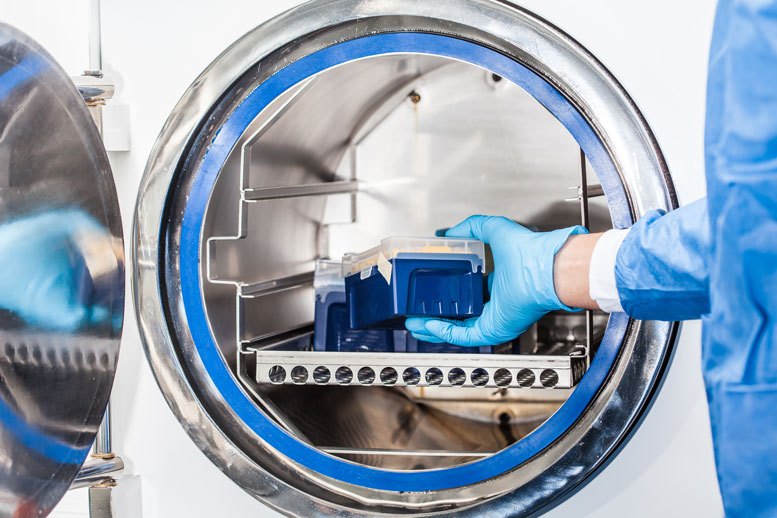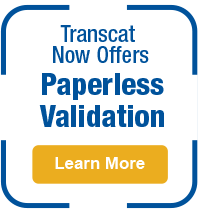Validation Services for Autoclave Steam Sterilization Equipment
Transcat knows accurate and consistent autoclave performance is critical to meeting regulatory requirements and safety standards for sterilization processes. That's why our highly qualified validation specialists come fully prepared with the latest tools and temperature mapping capabilities to perform autoclave qualifications with industry-leading expertise.
Our comprehensive validation protocols provide robust testing procedures to verify that your autoclave sterilization processes meet regulatory standards and industry best practices. Transcat's Autoclave Validation Services ensure the efficiency, reliability, and safety of your steam sterilization processes.
Qualification Methods
Defining Load Patterns & Cycle Parameters:
Cycle Parameters: Different materials and products require varying autoclave cycle parameters. Cycles are programmed to achieve consistent operational parameters such as sterilization temperatures & pressures, duration of the sterilization phases, and dry times. Custom sterilization cycles are developed in consideration of the characteristics of each load pattern, sterilization requirements, and industry standards.
Once sterilization cycle parameters are established for each load type, they are qualified to ensure consistent results are achieved that meet all acceptance criteria defined in the performance qualification protocol.
Load Types: Transcat provides guidance on defining specific load patterns based on the type, quantity, and operational variance of the items being sterilized.
Examples
Solid Load: Surgical instruments requiring a high-temperature, high-pressure cycle for complete sterilization.
Liquid Load: Culture media sterilization at lower temperatures to prevent evaporation and denaturation. Samples of the sterilized media will be submitted for growth promotion studies to verify the media retains its nutritional value.
Porous Load: Sterilization with longer exposure times to ensure penetration of steam into porous products and materials.
Heat-Sensitive Load: Delicate items are sterilized at lower temperatures to avoid damage.
Tempering Loads: Autoclaves can also be used for non-sterilization processes. NEXA can confirm if the ideal process temperatures are achieved for specific process applications like warming, melting, and container testing.
Qualification Services
Cycle Development (CD): Transcat recommends cycle development studies if new sterilization methods need to be established, prior to executing performance qualification studies. This ensures optimal cycle parameters are established to maximize long-term operational efficiency and increases the confidence in achieving a successful qualification result.
Installation Qualification (IQ): Tests are performed to verify that the autoclave is installed correctly and according to manufacturer specifications.
Operational Qualification (OQ): Tests confirm that the autoclave functions as intended under standard operating conditions. A calibration verification confirms the accuracy of temperature sensors, pressure sensors, and controller cycle times. Empty mapping studies are performed for each sterilization cycle to be qualified which validate performance parameters are achieved without the influence of the load. The empty mapping study also establishes temperature uniformity, stability, and the hot and cold locations within the autoclave.
Performance Qualification (PQ): Each load pattern will be defined, and triplicate qualification studies are performed to ensure sterilization results are repeatable.
Absolute load patterns are static and will be processed without any variance for the types, quantities, or location of the items being sterilized.
In contrast, MIN/MAX load patterns can be established to enable varying the load patterns to match operational needs.
All sterilization cycles will be documented and tested for each load pattern and will include temperature verifications via load penetration probes, biological-kill verifications via biological indicators (BIs), and lethality calculations to ensure the accumulated lethality (F0) meets the minimum requirements.



Benefits of Our Services:
Compliance: Ensure compliance with regulatory requirements such as FDA, ISO, and cGMP.
Quality Assurance: Provide objective evidence that confirms the accuracy and safety of sterilization processes.
Risk Mitigation: Identify and mitigate potential risks associated with autoclave operations.
Documentation: Receive comprehensive validation reports that compile the qualification summary, executed protocol, and all supporting objective evidence in a single PDF qualification package. All documents are routed for digital review and approval signatures utilizing Valgenesis, a cloud based 21 CFR Part 11 compliant system for paperless validation. This accelerates the review and approval processes and simplifies document retention and regulatory submissions.
Why Choose Us
Expertise: Our team consists of experienced validation experts with in-depth knowledge of autoclave qualification methods and regulatory standards.
Customization: We tailor our validation protocols to meet the specific needs of your facility and processes.
Efficiency: Minimize downtime with Transcat’s efficient qualification methods that utilize wireless loggers and a paperless validation process.
Reliability: Count on accurate and reliable validation results to support your quality assurance program.
Contact Us:
For more information or to schedule a consultation, please contact us or request a quote.



